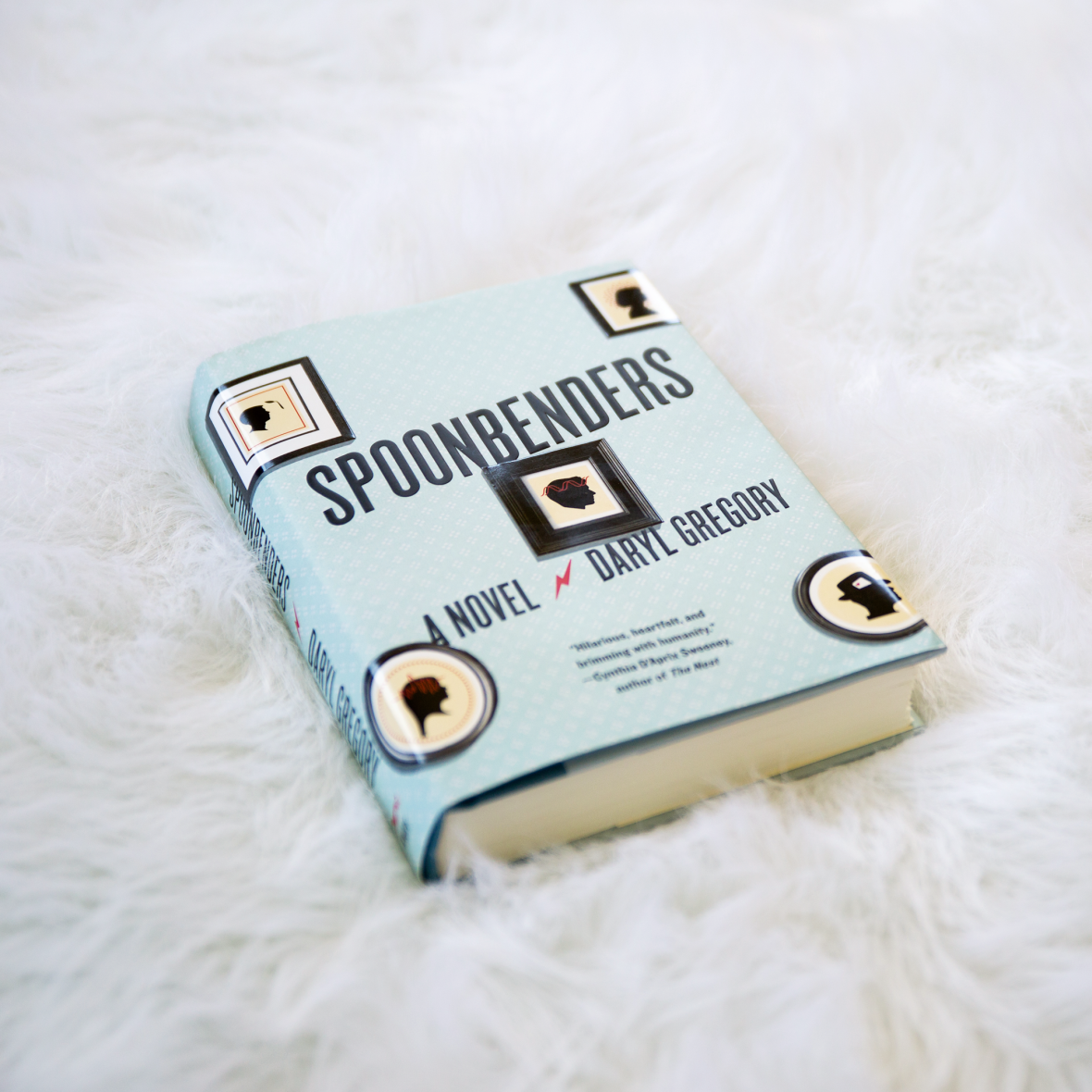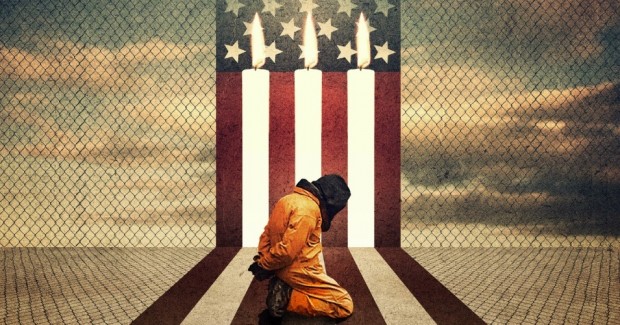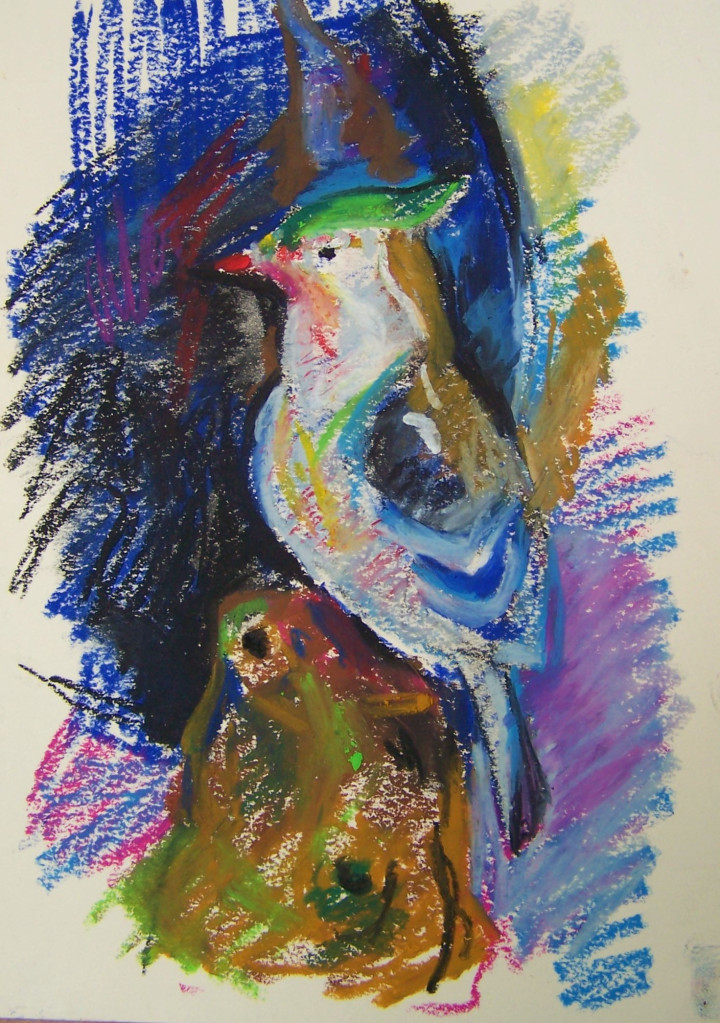Daryl Gregory’s book about a dysfunctional family of psychics will leave you completely spellbound. Set over the course of several months in 1995 but with plenty of flashbacks that span four decades, the book tells the story of the Telemachus family and the unique talents that bind them together.
Teddy Telemachus, the patriarch, is a master of illusion and deception who uses his talents to get closer to Maureen during a government study in the 50s. His marriage to Maureen, who is a genuine astral traveler, produces three children: Irene, whose ability to tell when anyone is lying results in relationship and career troubles for her; Frankie, who can move objects with his mind, a talent which doesn’t prove helpful with the business ventures that ultimately land him in serious trouble with the mob; and Buddy, who can see the future, which proves to be both a blessing and a curse and whose visions of the future drive the plot of Spoonbenders.
Spoonbenders focuses on the events of the Telemachus family in 1995. Matty, Irene’s son, has just discovered he can perform astral travel, just like his long-deceased grandmother, Maureen. Meanwhile, Buddy is preparing for a major event in the near future without providing anyone in the family with any explanation for the strange “projects” he is working on around the house, Teddy and Frankie both get mixed up with the local mob for very different reasons, and a government agent with whom Teddy used to work reenters the family’s life.

However, each chapter of the book moves from one member of the family’s story to another’s, and within those chapters, sections alternate between the present and flashbacks to the past. This structure might fail with other books, but in Spoonbenders, it enables readers to come away with a comprehensive understanding of how the past (and the future, in Buddy’s case) has shaped each of the characters and their understanding of their talents, and it also allows the characters’ individual complex storylines to unfold naturally.
I was first drawn to Spoonbenders because of the unique story, and that story drew me in from the first chapter and held on tightly until the very last page. The characters themselves had their own motivations and individual personalities that Gregory developed well. From the responsibility Irene felt to take charge of raising her brothers as a child to Buddy’s struggle to deal with his knowledge of future events, each of their emotions were shown clearly through their thoughts, interactions with others, and flashbacks, and I found myself especially drawn to Buddy. His strange behaviors throughout the book left me wondering the entire time exactly what he was up to, and seeing everything tie together with the events at the end of the book was such a rewarding element of the book. There were still several surprise twists I never saw coming, and when I finished reading, I felt just like one of Teddy Telemachus’s “marks.” I even found myself understanding Frankie more at the end of the novel. Although he seemed to be a completely selfish character who was unaffected by his mother’s death, there was much more to him than I thought.
I loved the Telemachus family and all their dysfunction, but the underlying love for one another and the bond they shared as a family was something that was never really emphasized until the very end. Frankie did not seem to care for Buddy at all, and given their history, his emotions toward him could almost be considered reasonable, but he mostly just ignored and disregarded him completely. Irene’s interactions with Frankie and Buddy were very limited throughout the book, and the ones she did have were those more like acquaintances than siblings. I expect such with dysfunctional families in books, but I have still always been able to pick up on the deeper love that those families have for one another, and I didn’t feel that much in Spoonbenders at all until the very end.
Spoonbenders is incredibly entertaining and has its fair share of humorous moments, but I found it to also be incredibly heartfelt and powerful. It reminded me the dysfunctional family aspect of The Nest with the humor and action of the movie The Whole Nine Yards.
Rating: Advertisements
Share this:
Advertisements
Share this:




